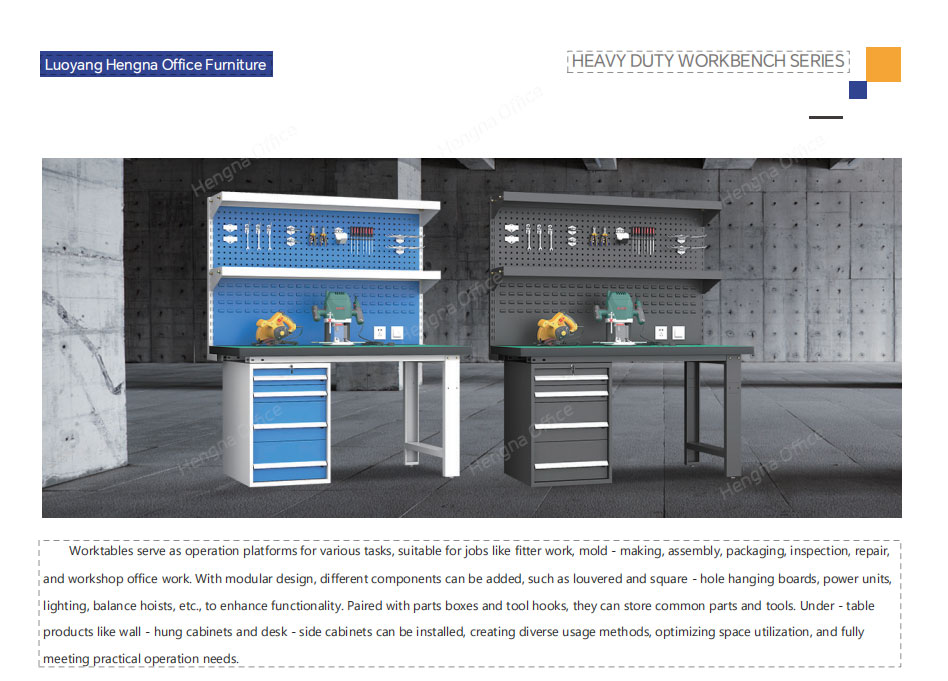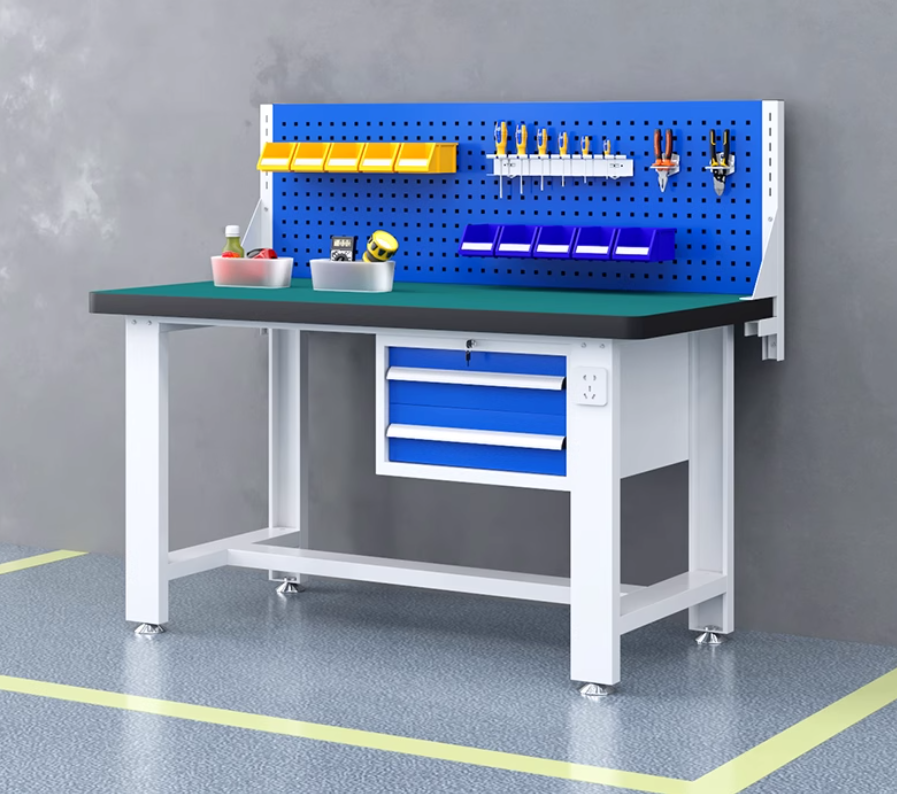Selecting the Right Workbenches for St. Louis Factory Workshops
In St. Louis factory workshops, picking the appropriate workbenches is vital for efficiency, quality, and safety. Here’s a guide to help you make the right choice.
Selection Methods
Heavy – Duty Workbenches
Load – Bearing Capacity
Determine the maximum weight of items the workbench will hold. In machinery maintenance, it might need to support large engine parts. Opt for a workbench with a load – bearing capacity exceeding your expected maximum, typically 1000 – 5000 lbs or more. A steel – framed workbench is a great choice for its strength and durability.
Size and Dimensions
Measure the workshop space. Consider length, width, and height. A 30 – 36 – inch height is common for standing work, but adjustable – height workbenches offer more flexibility. In narrow – aisle workshops, a compact or modular – designed workbench may be necessary.
Durability and Construction
Choose workbenches made of high – quality materials. The worktop should resist scratches, impacts, and chemical spills, like high – density polyethylene or steel – reinforced options. Welded joints are more durable for heavy – duty use.

Anti – Static Inspection Tables
Anti – Static Performance
Verify the surface resistance (10⁶ – 10⁹ Ω) and electrostatic decay time (shouldn’t exceed 2 seconds) with a resistance tester. In St. Louis cleanrooms handling sensitive electronics, accurate anti – static properties prevent ESD damage.
Cleanroom Compatibility
Use non – particle – shedding materials like stainless steel. The table should be easy to clean and have a smooth surface to minimize dust accumulation.
Ergonomics
The table height should be ergonomic. Adjustable – height tables are beneficial for different workers and inspection tasks.
Packable Workbenches with Plastic Storage for OEM
Portability and Packability
For workshops that need to reconfigure spaces, the workbench should be easy to pack and transport. Check its weight, presence of handles or wheels, and ensure a compact packing size for storage.
Plastic Storage Function
The plastic storage compartments should be of sufficient size and quantity, well – designed with dividers. The plastic should be durable and impact – resistant.
Customization for OEM
Look for suppliers offering customization in size, storage layout, and branding to meet OEM production needs.
Cleanroom Workbenches
Cleanroom Standards Compliance
Ensure the workbench meets relevant cleanroom standards, like ISO standards. Check filtration and air – flow design if it has air – cleaning features.
Material and Surface Finish
Use non – outgassing, non – particle – generating materials like stainless steel with a matte or smooth – polished finish for easy cleaning.
Static Control in Cleanrooms
In addition to anti – static properties (if required), consider grounding the workbench to dissipate static charges.
Key Considerations
Environmental Factors in St. Louis
Temperature and Humidity
Given St. Louis’ variable climate, choose workbenches suitable for the local temperature and humidity. In high – humidity areas, corrosion – resistant materials like stainless steel or aluminum are preferred.
Dust and Contamination
Select workbenches that are easy to clean and don’t accumulate dust, especially in cleanrooms.
Safety
Stability and Load – Bearing Safety
Ensure workbenches are stable and can support the load safely. Features like levelers help balance on uneven floors.

Electrical Safety
For anti – static and some cleanroom workbenches, proper grounding is essential to comply with local electrical codes.
Cost – Effectiveness
Initial Cost vs. Long – Term Value
Consider the long – term value over the initial cost. A high – quality workbench may save on maintenance in the long run.
Total Cost of Ownership
Factor in maintenance, replacement, and customization costs.
Supplier Reliability
Reputation and Experience
Choose suppliers with a good reputation and experience in similar factory environments. Read customer reviews.
After – Sales Service
Ensure the supplier offers warranty support, maintenance, and spare parts for minimal downtime.
In conclusion, a comprehensive assessment of these factors will help St. Louis factory owners and managers choose workbenches that boost productivity, quality, and safety.
